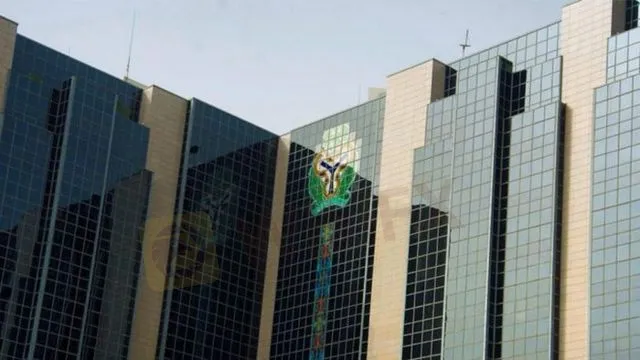简体中文
繁體中文
English
Pусский
日本語
ภาษาไทย
Tiếng Việt
Bahasa Indonesia
Español
हिन्दी
Filippiiniläinen
Français
Deutsch
Português
Türkçe
한국어
العربية
How commodities ecosystem can drive CBN’s FX policy
Abstract:Bankers and other operators in the Nigerian financial market have identified deployment of commodities ecosystem as a means, which the Central Bank of Nigeria (CBN) can achieve the plan to generate up to $200 billion yearly from non-oil exports in the next three to five years through its RT 200 FX policy.

Bankers and other operators in the Nigerian financial market have identified deployment of commodities ecosystem as a means, which the Central Bank of Nigeria (CBN) can achieve the plan to generate up to $200 billion yearly from non-oil exports in the next three to five years through its RT 200 FX policy.
The stakeholders that gathered at a breakfast meeting, hosted by Lagos Commodities and Futures Exchange (LCFE) at the weekend, agreed that effective utilisation of Nigerias commodities ecosystem presents ample opportunity for the apex bank to generate forex through non-oil exports.
In his presentation, the Divisional Head, Agribusiness, Natural Resources and Project Development Heritage Bank, Olugbenga Awe, explained that the Nigerian economy had been well-diversified, going by statistics except for the sources of forex.
Awe, who spoke on ‘The opportunities for financial Institutions in the CBN RT 200 FX’ programme, stated that a commodity exchange was a risk management platform.
According to him, the biggest challenge to the exportation of non-oil products in Nigeria is the ability to meet global standards and demand.
He explained that the Nigerian non-oil products could boost forex earnings if they meet global standards.
This is where commodities exchanges come in. Any product whose electronic receipt is traded on a commodities exchange must be of global standard.
“Banks are willing to support exporters provided they meet certain criteria, including a history of performance, export volume and frequency, payment methods, products sourcing strategy, risk mitigants and seasonality among others.”
Corroborating him, the Managing Director, Agvest Nigeria, Bode Abikoye, noted that commodities prices offer protection from the effects of inflation.
Investing some of your portfolios in commodities is recommended by many experts as it is seen as a diversifier asset class.
Moreover, some commodities tend to be a good hedge against inflation, such as precious metals and energy products.
Investors break down commodities into two categories: hard and soft. Hard commodities require mining or drilling, such as metals like gold, copper, and aluminum, and energy products like crude oil, natural gas, and unleaded gasoline.
Soft commodities refer to things that are grown or ranched, such as corn, wheat, soybeans, and cattle. Commodities tend to bear a low to negative correlation to traditional asset classes like stocks and bonds.
“Supply-and-demand dynamics are the main reason commodity prices change. When there is a big harvest of a certain crop, its price usually goes down, while drought conditions can make prices rise from fears that future supplies will be smaller than expected”, Abikoye said.
The Chief Executive Officer Lotus Capital, Hajara Adeola, who spoke on ‘The Potentials of Non-Interest Financial Instruments to Finance Commodities Ecosystem’, explained that non-interest financial instruments were based on managing businesses on moral principles, stating that they offer many benefits to investors.
In his welcome remark, the Managing Director, LCFE, Akin Akeredolu-Ale explained that a commodities exchange would always come in by catalysing enabling environment, alignment of relevant stakeholders, transparent trading platform, certification and standardisation, data and price discovery, enabling environment for price discovery and regulatory framework.
Disclaimer:
The views in this article only represent the author's personal views, and do not constitute investment advice on this platform. This platform does not guarantee the accuracy, completeness and timeliness of the information in the article, and will not be liable for any loss caused by the use of or reliance on the information in the article.
Read more

Never Heard of Dynasty Trade? Here's Why You Should Be Worried
Have you heard this name before? No , it’s time you do because staying unaware could cost you. This platform is currently active in the forex trading and has been linked to several suspicious activities. Even if you’ve never dealt with it directly, there’s a chance it could reach out to you through ads, calls, messages, or social media. That’s why it’s important to know the red flags in advance.

WEEKLY SCAM BROKERS LIST IS OUT! Check it now
If you missed this week's fraud brokers list and are finding it difficult to track them one by one — don’t worry! We’ve brought together all the scam brokers you need to avoid, all in one place. Check this list now to stay alert and protect yourself from fraudulent brokers.

Catch the Latest Update on BotBro & Lavish Chaudhary
BotBro, an AI-based trading platform, became popular in India in 2024—but for negative reasons. Its founder, Lavish Chaudhary, who gained a huge following by promoting it heavily on social media. Since then, he has become well-known, but for many controversies. Let’s know the latest update about Botbro & Lavish Chaudhary.

Trading Other People’s Money | What Prop Firms Don’t Tell You
Proprietary (prop) trading firms have become increasingly popular. They give traders the chance to trade with larger amounts of money without risking their own savings. For many, this sounds like the perfect opportunity to grow faster and earn more. But while the benefits are appealing, there are also risks and hidden rules that traders must understand before joining a prop firm.
WikiFX Broker
Latest News
RM750 Million Lost to Investment Scams in Just Six Months
5 things to know before the Thursday open: Meme stock revival, Trump's Fed visit, Uber's gender feature
Why Octa Is the Ideal Broker for MetaTrader 4 & 5 Users
CNBC's Inside India newsletter: Leaving, but not letting go — India's wealthy move abroad, but stay invested
Moncler raises prices on tariffs, may postpone store openings if downturn worsens
Titan FX Adds WhatsApp and Telegram for Enhanced Support
Nestle flags further potential price hikes as tariffs, commodities weigh on margins
Stop Level Forex: How Does it Help Traders Prevail When Losses Mount?
eToro Launches Spot-Quoted Futures Trading in Spain
Titan FX Introduces Redesigned Client Cabinet for Enhanced Usability
Currency Calculator


